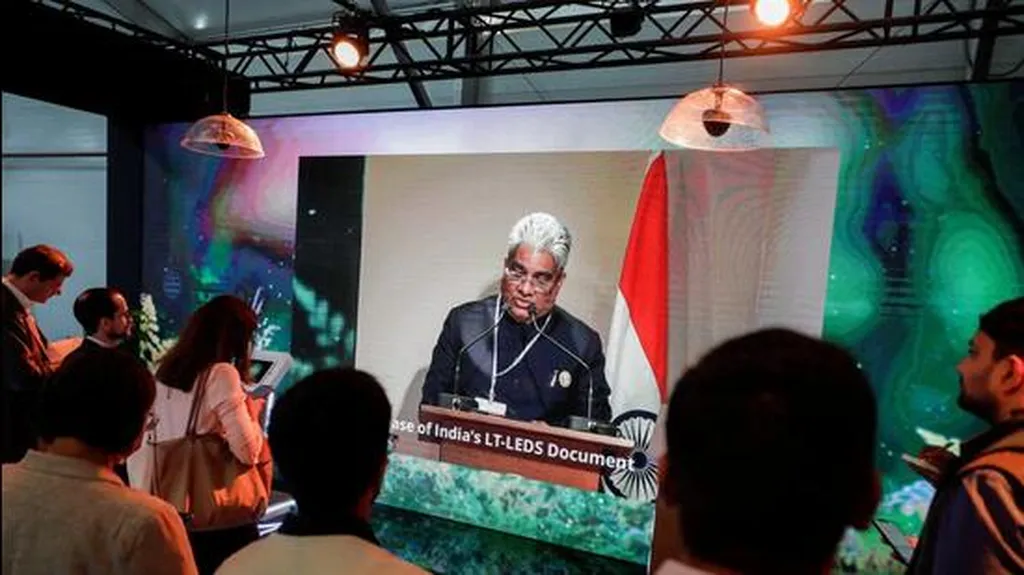In the pursuit of a net-zero future, India’s electricity generation landscape is poised for a significant transformation, according to a recent study published in *e-Prime: Advances in Electrical Engineering, Electronics and Energy*. The research, led by Rupsha Bhattacharyya from the Board of Studies in Applied Systems Analysis at Homi Bhabha National Institute (HBNI) and the Chemical Engineering Group at Bhabha Atomic Research Center (BARC) in Mumbai, offers a nuanced look at the optimal low-carbon electricity generation mixes for India by 2070.
The study employs multi-criteria assessments to evaluate various supply-side scenarios, considering six low-carbon power generation technologies. The goal is twofold: to identify an optimal portfolio of generators to meet future demand and to integrate auxiliary systems like water electrolysers, hydrogen storage, and battery electricity storage to manage surplus power efficiently.
“Our analysis reveals that the optimal generation mix for a net-zero India by 2070 will vary depending on policy priorities,” Bhattacharyya explains. The study suggests a range of optimal mixes, with solar PV contributing 2.27–11.39%, wind power 1.56–18.89%, hydel power 0.02–1.52%, biomass-based power 0.04–0.90%, fossil fuels with carbon capture 45.8–72%, and nuclear power 22.5–24.6%. These mixes could reduce the carbon emissions intensity of the electricity sector by 87–93% from current levels.
The implications for the energy sector are profound. The research underscores the need for a diversified energy portfolio, balancing renewable and non-renewable sources with carbon capture technologies. This approach not only mitigates environmental impact but also ensures energy security and economic viability.
“Achieving a net-zero future requires a strategic and flexible approach to energy planning,” Bhattacharyya notes. The study’s findings could guide policymakers and industry stakeholders in making informed decisions about infrastructure investments and technological advancements.
As India strides towards its net-zero targets, this research provides a crucial roadmap for navigating the complexities of energy transition. By embracing a multi-criteria assessment approach, the nation can optimize its electricity generation mix, ensuring a sustainable and resilient energy future.
The study, published in *e-Prime: Advances in Electrical Engineering, Electronics and Energy*, translates to “Advances in Electrical Engineering, Electronics and Energy” in English, highlights the importance of integrating diverse energy sources and advanced storage technologies. This holistic approach is essential for meeting future energy demands while significantly reducing carbon emissions.
In an era of rapid technological advancements and evolving policy landscapes, this research offers valuable insights for the energy sector. It emphasizes the need for adaptable and forward-thinking strategies to achieve a net-zero future, shaping the trajectory of India’s energy transition.

